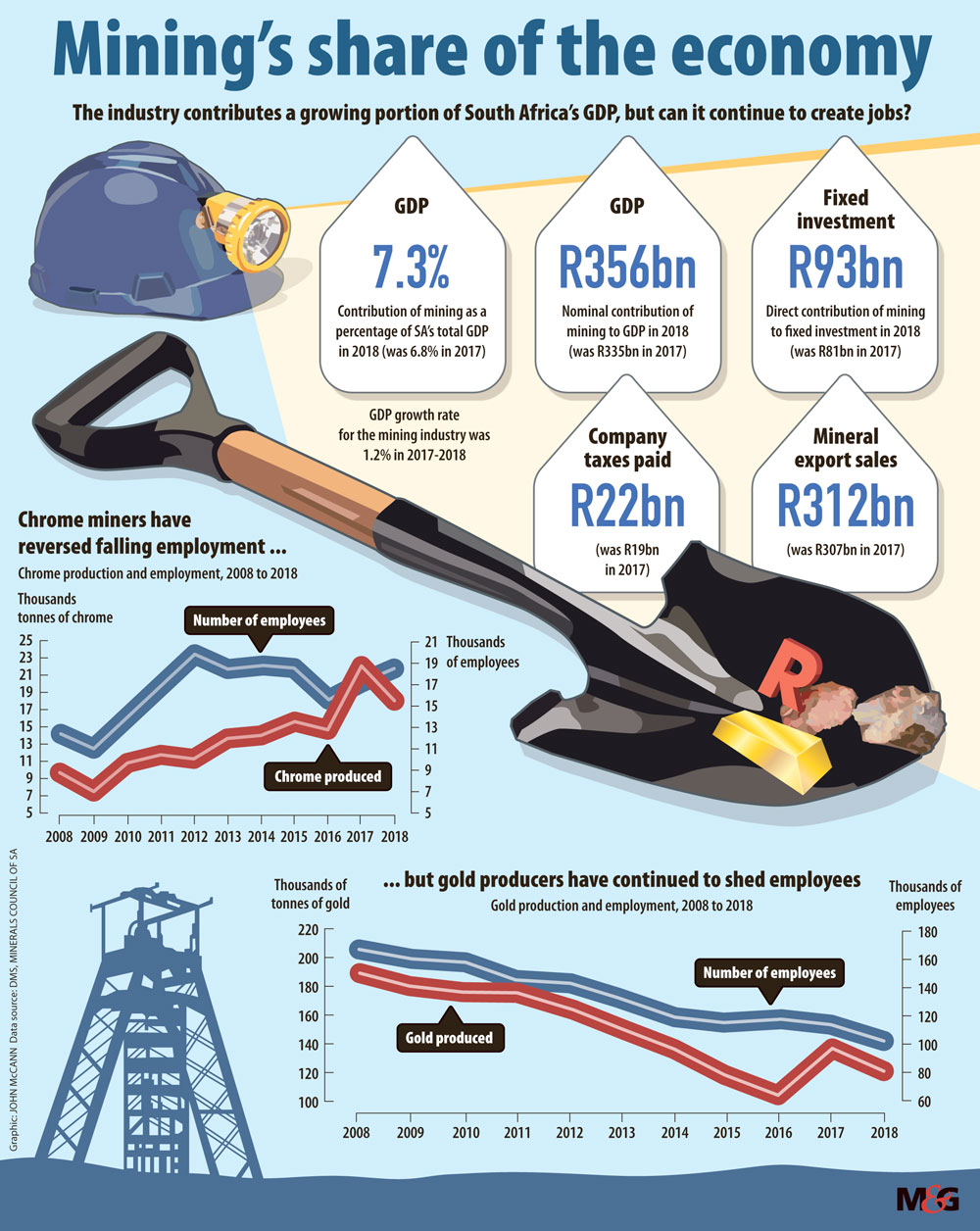(Graphic: John McCann/M&G)
South Africa is open for business and the government is committed to ensuring the mining industry has a stable regulatory and policy environment.
This was government’s key message to investors and the industry at the annual Mining Indaba, held in Cape Town this week.
A year ago, tensions between the government and the mining industry were high, because the parties were locked in a legal battle over the third iteration of the Mining Charter.
This year the state was at pains to demonstrate that much has changed and President Cyril Ramaphosa became the first president to address the annual event.
Since he has been in office and Gwede Mantashe was appointed the mineral resources minister, the department has finalised a new charter and the problematic Mineral and Petroleum Resources Development Amendment Bill, which tried to lump the oil and gas sector with mining, has been withdrawn.
“We want to see you not in the courts but in your boardrooms where we can talk and debate,” Ramaphosa told delegates. “Please be assured that Team South Africa stands ready to work with you as we set mining on a new path of growth and renewal.”
Regarding anxiety about land expropriation without compensation, Ramaphosa said it would only apply for the purposes of land reform “within a clearly defined set of circumstances. Investors need not fear that their investments and assets will be taken away from them.”
The security and affordability of energy supply were also topical issues at the indaba, coming at the same time as the National Energy Regulator of South Africa (Nersa) is holding a consultative process to determine whether Eskom should be granted a 15% tariff increase each year for the next three years.
In its submission to Nersa, the Minerals Council said the increase would result in 95% of the gold industry becoming loss-making, threatening about 100 000 jobs. In the platinum sector, more than 11 000 jobs would be at risk.
Without giving any details, Mantashe said the government was addressing the problems of administered prices, including that of electricity.
